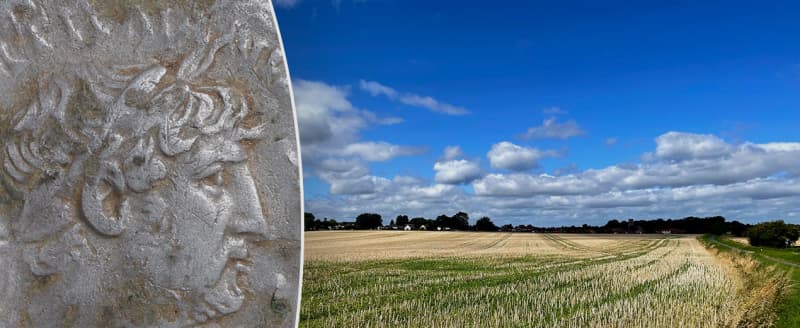
Roman villa complex discovered in English countryside by hobbyist's lucky find
An amateur metal detectorist's discovery of Roman cavalry swords led archaeologists to uncover a 2,000-year-old settlement in Gloucestershire, including a villa and building remains. The find was announced by Cotswold Archaeology and Historic England.
Officials recently announced the discovery of a 1,900-year-old Roman coin hoard in Norfolk, England, which is equivalent to a Roman legionary's monthly salary. The hoard consists of 25 silver denarii and was found near the village of Great Ellingham in 2023.
Adrian Marsden, a coin specialist, mentioned that the coins were spread across a field due to centuries of farming activity. The hoard is estimated to have been lost between the 160s and 170s, with some coins showing little wear and specific depictions of Roman emperors and symbolic images.
The discovery of the Roman coin hoard in Norfolk is not uncommon for the area, as it has seen various Roman artifacts and occasional small hoards over the years. The region was known for its wealth in the Roman period, with a legionary typically being paid 25 denarii a month.
Ancient Romans began settling in Britain in 43 A.D. following an invasion led by Emperor Claudius. They began withdrawing in 410 A.D., leaving behind remnants that are still discovered today in the U.K. Recent discoveries include 2,000-year-old shoes at an Ancient Roman fort in Northumberland and the resolution of an archaeological puzzle in London after 1,800 years.
For more Lifestyle articles, visit foxnews.com/lifestyle.